The Video Game Library Newsletter - Vol. #016
Another INSANE news week in the world of Video Game books! Plus a browse through The Dunwall Archives, a quick lesson in your ABCs, and a great interview with Horacio Corral of Critical Hit Books.
Welcome back to The Video Game Library Newsletter!
A very exciting one this week that I think a lot of you will enjoy. It was a big week of travel and work for me, so wasn’t sure I’d be able to get this week’s Newsletter out on time, but 16 issues in, and I haven’t missed a Sunday yet!
Remember, if you enjoy all the work that goes into these weekly digests, please consider supporting at the Paid tier.
This week in 📰 News & Highlights, we see Dark Horse launch God of War: 20th Anniversary Retrospective, GWENT Vol. 2, and announce The Art of Anno 117. Square Enix matched their news trio with English editions of FFIX Picture Book, FFVII Rebirth Ultimania, and the NieR Poster Collection. Plus, new manga from VIZ, another Kirby novel from Kadokawa, and Kickstarters from Boss Fight Books and Ninty Media.
In 📚 Behind the Shelves, site tweaks continued, but the real win was a generous donation of Dishonored: The Dunwall Archives. A long-awaited gem now part of our collection!
In 💡 Recommended Read, that very same Dunwall Archives takes the spotlight. An eerie, lore-rich deep dive into the world of Dishonored, presented like a historical dossier.
In 💾 From the Archives, it’s time to learn our ABCs, with a gaming twist. I spotlight some playful and fun alphabet books for all ages.
And in ✨ Community Interview, Horacio Corral of Critical Hit Books joins us to talk about translating culture, building a global publishing scene, and preserving Latin America’s gaming history.
Let’s dive in! 👇
📰 News & Highlights
Tons of fun announcements this week from some of my favourite North American publishers. And while Europe has been a little quieter this week, Japan makes up for it with a few fun additions to the Newsletter.
“Listen, boy!” The God of War: 20th Anniversary Retrospective released this week from Dark Horse, and it is AMAZING! Been working my way through the Greek Saga, and snuck a peak at the Norse Saga. Well worth the money!
Another Dark Horse release this week came in the form of GWENT: Art of The Witcher Card Game Volume 2. I admittedly didn’t get too deep into the game while playing The Witcher III, but I know it has an impressive following.
And to round off the trilogy of Dark Horse news, they’ve announced The Art of Anno 117: Pax Romana, a 232-page hardcover artbook releasing December, in collaboration with Ubisoft Mainz. Featuring concept art, developer commentary, and a deep dive into Ancient Rome, the book offers fans a visual companion to the upcoming strategy game
Square Enix also had a trilogy of announcements for us this week! If you’re like me and have been drooling over the recent release of the Final Fantasy IX Picture Book in Japan, then you’ll be pleased to know that they’ve just announced its English release hitting shelves next May!
Final Fantasy VII Rebirth Material Ultimania (with that odd cover that I’m still not sold on) is also getting an English release next July. An over 200-page visual tribute to one of the most beloved RPGs of all time.
And finally from the folks at Square Enix, the NieR Poster Collection. A collection of 32 premium-quality removable posters featuring the hauntingly beautiful art of the award-winning video game series NieR.
While not quite a NEW book series, I felt it was worth mentioning that Cyan has just announced that, after 7 years of being unavailable, the digital ombnibus collection of the first 3 Myst novels is once again available as The Myst Trilogy. This is the first time these books can be read on Amazon Kindle and Apple Books!
And from one of my favourite authors, David L. Craddock, he’s just announced that Better Together: Stories of EverQuest. Originally posted on ShackNews, it is now a full-fledged book!
For those of you who’ve been enjoying everything Paul and the team over at Ninty Media have been putting out over the years, they just launched their latest Kickstarter for Ninsight - a NEW Nintendo Magazine. Go check it out!
And speaking of awesome Kickstarters, Season 8 of Boss Fight Books just went live this week, and they’ve revealed Legend of The River King by Alexander B. Joy. Admittedly not a series I’m familiar with - but this will 100% be making it onto my shelf. With books in Season 8 - this’ll bring the collection to 40 BOOKS!!
For Shantae fans, pre-orders for the 2025 Shantae Swimsuit Special #1 are now available from Udon Entertainment! Friends Rottytops and Sky, and baddies like Risky Boots and Nega-Shantae all appear alongside the belly-dancing, half-genie hero herself!
Also, from Udon, with pre-orders announced way back in Vol. #004, Darkstalkers X Street Fighter: Blood Throne 1 is out now! A chilling new story arc begins here… who will be the true LORDS OF THE MAKAI?
Disney Twisted-Wonderland: The Manga - Book of Octavinelle Vol. 1 released this week, along with a whole bunch of other news from VIZ. Really gotta give this game a try.
And in other manga news (…still VIZ), Kirby Manga Mania Vol. 8 released this week! Looking at my shelves, I realize I’m still a few volumes behind which will obviously need to be rectified.
Japan also got some
KirbyWaddle-Dee love, with the latest novelization release from Kadokawa! 星のカービィ ワドルディのおるすばん大決戦!! (角川つばさ文庫). Over 30 of these novels have released, and I’m loving how uniform they all look.For Minecraft fans, Kadokawa just released their latest Mook with てれびげーむマガジン ゲーム大図鑑 マインクラフト 構造物&バイオーム攻略ブック, a guide to teach you everything you need to know about structures and biomes in Minecraft!
A continuation of the Bloomsbury "Influential Video Game Designers” translation efforts in Japan sees the 2nd release this week with Shigeru Miyamoto: Super Mario Bros., Donkey Kong, The Legend of Zelda. So far they’ve done Kojima and Miyamoto, but wondering if they’ll also be tackling the western industry icons, or move right onto Inafune?
Nightreign’s been out for a few week’s now, so it’s great to see Japan finally get the Kadokawa guide released this week. エルデンリング ナイトレイン 公式ガイドブック is a must have for any Japanese speakers, or even collectors who want to pad their shelves with more Elden Ring love.
Did I miss something cool? Want to see this laid out differently?
Drop it in the comments or swing by our Discord to share it with the community.
Let’s keep this celebration of game-inspired books going strong!
📚 Behind the Shelves
Every week, I take you behind the scenes of The Video Game Library. From surprising discoveries to cataloging challenges, there’s always something new as we dig deeper into this ever-expanding archive of game-related literature.
Much of my time this week was spent on the phone, and in chat, with Wix support trying to remedy some speed challenges with the website. I’m really striving to make it as speedy as possible, and remove as much friction as possible for those who use the site regularly. Still room to improve, but the LCP is definitely on the right track now.
And while much of the site work was on the back-end (and quite dry to talk about) this week, I did want to make mention of some amazing new additions to our personal collection.
Firstly, an incredibly kind donation from Phi Nguyen. Been on the lookout for a copy of The Dunwall Archives for a while, and I’m so glad to (finally) be adding it to our shelves. This community has been absolutely amazing with their donations.
And the next was from the fine folks at Dark Horse Books who just released their (incredible) God of War 20th Anniversary Retrospective. I’ve been flipping through the pages each night, slowly making my way through the Greek Saga. Though I’d be lying if I said I didn’t have a little peak at the upcoming Norse Saga book.
A little light on the BTS this week, but drop your thoughts in the comments below. Your feedback helps shape how we deliver these looks behind the curtain.
💡 Recommended Read of the Week
Dishonored: The Dunwall Archives
Dark Horse Books
Dishonored: The Dunwall Archives landed in my mailbox this week, thanks to an incredibly generous donation from Phi Nguyen. I ended up reading it (VERY) late into the night. I’ve never given Dishonored much love in the past, but this book has pulled me straight into its eerie, plague-ridden world.
Presented as an in-universe collection of documents, maps, letters, and reports, the book acts like a dossier compiled by Dunwall’s historians. It's filled with lore about Dunwall and the wider Empire of the Isles, all brought to life through striking concept art and really impressive design. Super compelling, even for someone like me who’s largely with the franchise.
This particular copy had passed through the hands of Arkane Studios staff in Austin, Texas before making its way here. A very cool detail that makes it feel like a piece of gaming history in itself.
The book is sadly out of print, but digital versions are still available, and secondhand copies do surface now and then. If you're into Dishonored, rich worldbuilding, or just love beautifully assembled lore books, this one’s well worth hunting down.
You can find details about Dishonored: The Dunwall Archives here.
💾 From the Archives
Each week, I’ll dive deep into the shelves of The Video Game Library to spotlight a hidden gem or forgotten series — with the hope of surprising you with something new, unexpected, or long overlooked. This week, I wanted to share…
…a collection of books that can help you learn your ABCs.
While browsing through one of our local bookshops this week, I overheard a couple trying to pick out an ABC book for a youngster in their lives. It got me thinking about some of the cool ABC books I’ve catalogued, from indie authors to official tie-ins with major franchises like Pokémon and World of Warcraft, and I felt it might be worth shedding some light on some of them in this week’s Newsletter.
The concept is simple: introduce each letter of the alphabet through the lens of gaming.
Take A is for Azeroth for example. This official World of Warcraft release takes kids on a tour of Azeroth, from “Blood Elf” to “Zandalar,” with dragons, lore, and legends sprinkled in between. It’s penned by none other than Christie Golden, and while it’s kid-friendly on the surface, longtime WoW fans will appreciate the bit-sized lore tucked into each page.
Then there’s The ABCs of Gaming, written by Linus Tech Tips’ Linus Sebastian. This one’s all board-book simplicity: big letters, techy terms, and fun illustrations by Sarah Butt. Just look at those happy cabinets :) :) :)
Pokémon: The ABC Book is another popular one. Part of the classic Little Golden Books series, it uses fan-favorite Pokémon to walk kids through the alphabet: “A is for Arcanine,” “B is for Bulbasaur,” and on it goes. There’s even a Pokémon Primers ABC Book that has some great fold-out features.
But don’t be fooled, ABC books can be for the adults in the room as well!
God of War: B is for Boy is a tongue-in-cheek “children’s book” set in the world of Kratos and Atreus. It’s playfully grim, and more coffee-table humor than bedtime story, but it’s easily one of my favourites in the list.
And if you’re after something more encyclopedic, check out Video Game Legends Alphabet by Beck Feiner. Each letter is assigned a legendary gaming icon, from Donkey Kong to Lara Croft, with short bios and bold illustrations. It's alphabet meets hall of fame.
Taken together, these books reflect a cool little sub-genre in game publishing, one where literacy and gaming culture intersect, not just for fun, but to build a bridge between generations. Parents can share their love of games with their kids, kids can learn their letters with Link and Luigi, and somewhere in between, everyone’s having a good time.
📚 Want to check out some of these titles? We’ve catalogued them all right here at The Video Game Library.
✨ Community Interview
Horacio Corral is one of those fascinating talents that straddles a dozen disciplines - editor, librarian, translator, teacher, publisher, and game developer. Half Argentine, half Brazilian, he’s spent the last two decades translating, distributing, and publishing books across Latin America, while also helping shape the region’s game industry.
From founding Tlön Studios and releasing indie games like Soul Gambler and Face It, to launching Critical Hit Books - a publishing imprint dedicated entirely to the world of video games - who’s first book, Videogame Crash, explores the massive wave of industry layoffs and the emerging legal framework for games in Brazil.
We had an amazing conversation about the book, preserving gaming culture, building a better publishing ecosystem, and why translating is harder than it looks.
Hope you enjoy!
Let’s kick things off with an intro. Who is Horacio Corral?
I’m a rare Latin American hybrid—half Argentine, half Brazilian—and something of a multiclass character: editor, librarian, and translator. I’ve been working with translation, books, and games for about 20 years—more or less in that order.
Early on, I combined my knowledge of languages, cultures, and technology, which naturally led me into what we now call the creative economy. I’ve always loved games, but it’s a complex industry that often requires significant investment—something far from my reality back then. So I started informally: translating, working in bookstores, and moving into book distribution—first print, then digital, and eventually audiobooks. Over time, I slowly unlocked all the achievements in the publishing world—until I finally unlocked my own publishing house: Tacet Books, where I publish literature classics in their original languages—English, Spanish, Portuguese, and Russian.
My deeper involvement with games began in 2013, when I translated the visual novel Soul Gambler. That led to the founding of Tlön Studios, where we released Soul Gambler and Face It. I later stepped away, but the games are still available on Steam.
Since 2014, I’ve been teaching game localization. It brought me closer to the process and deepened my ties to the industry.
And how about your latest endeavor, Critical Hit Books?
Critical Hit Books is an expansion of Tacet Books: a dedicated imprint focused on games. The goal is to treat them as the powerful and relevant medium they are—publishing investigative works like Pedro Zambarda’s Videogame Crash, as well as books on design, audio, marketing, and business to help grow the Brazilian and Latin American scenes.
In short, Critical Hit Books brings all my skills together in one place.
So let’s talk about Videogame Crash, which dives into the 2023/24 crisis where 20,000+ workers lost their jobs. It’s not easy to cover both the legal frameworks and the human side of layoffs. What was the editing process like for this one, and how did you balance all those layers?
The challenge was weaving together regulatory analysis, economic insight, and personal stories without diluting any of them—and above all, avoiding a one-sided narrative. In Brazil, the bill was initially pushed by far-right politicians, but later, left-wing representatives and game developers acted to reshape it. It became a high-stakes political clash.
Pedro, a seasoned hard news journalist—tenacious, experienced, and genuinely combative—brought both rigor and empathy to the table. Our editorial work focused on framing the narrative so the laws didn’t read like technical jargon, and the layoffs weren’t reduced to numbers. We wanted something thorough, yet deeply human.
The content even inspired the book’s pixel art cover, with a politician seemingly on fire or charging up a special attack—depending on your perspective. The goal was to present something playful and inviting, in contrast to the weighty political relevance of the topic.
Politics is action—it’s what we do, here and now—and this book is about how we can respond. Throughout the editing process, we aimed to tell this story like a fast-paced thriller, without compromising the truth.
For people outside Latin America, the Brazilian game scene, and its politics, are still kind of a mystery. What do you think folks get wrong about it, or maybe just don’t know yet?
Unlike Japan, the US, and more recently Canada or Poland, Brazil and most of Latin America historically had no government subsidies or public funding for game development. That’s now changing. With Brazil’s new Legal Framework for Video Games—Pedro Zambarda’s main topic in Videogame Crash—we’re likely to see major transformation in the coming years. But I’d also like to offer some broader context.
As an Argentine and a student of international relations, I feel compelled to clarify something: Latin America is not a uniform block. While most countries are former Spanish colonies competing for limited resources, Brazil became a kind of empire overnight in the 1800s when the Portuguese royal court fled Napoleon and relocated to Rio. Imagine grouping Puerto Rico and Guatemala in the same bracket as the US—that’s the kind of mismatch we’re talking about.
You don’t have to take my word for it—just play any Paradox game like Victoria 3 or Hearts of Iron IV to see Brazil’s scale and historical power. Brazil has long had an oddly Enlightenment-driven political tradition—think of Pedro II showing up in Civilization games as a progressive leader. This shaped Brazil’s technological trajectory, especially post-1980s. For a brilliant deep dive into this, I recommend Henrique Sampaio’s book Primeiro Contato.
The approval of Brazil’s game law—passed with strong support for developers—sets a rare and hopeful precedent in the region.
I recently had a great chat with Thais Weiller, who spoke about how hard it is for indie devs in Brazil to stay visible and sustainable. Do you feel books like this can help amplify these stories?
First of all, you were lucky to chat with one of the smartest and most awesome people in Brazil’s indie scene. I’ve been friends with Danilo and Thais from Joymasher for over a decade and have worked on the localization of several of their games. They’re a perfect example of truly independent developers delivering top-tier quality—what we now call Triple-I games.
Second, absolutely. Books still play a vital social role: they carve knowledge into stone, validate it, and give it weight. That’s why I believe books are the fuel that can take developers, games, and the industry to the next level. Without knowledge, critique—and yes, even satire—we can’t grow.
But more importantly, books help us tell stories. Stories that become legacy, myth, legend, schools of thought—ways of thinking about making games. That’s what we aim to support with Critical Hit Books: not just through content, but also through accessibility. We use all our publishing experience to make these stories available in print and digital formats, both in Brazil and abroad.
In a globalized, digital media landscape, access to gaming knowledge must be universal. That’s not just an ambition—it’s a necessity.
You touch on the importance of sharing knowledge, and the preservation of stories. With your got a background in libraries, translation, localization, and publishing, how do you see video game books fitting into the bigger picture of preserving gaming culture?
We’re living in a very particular moment in history—one where we’re losing content. Lost media is a real problem. But at the same time, we’re aware of it and taking action. Initiatives like the Video Game History Foundation and The Video Game Library are incredible, and I’m genuinely happy they exist.
The role of libraries and books isn’t just to collect content—it’s to give it back to people. For a long time, we thought of books mainly as printed objects. But today, thanks to digital formats like ePUB and audiobooks, books have transcended their physical form. They can now be read by tools like Alexa, for example, making them accessible to people with visual impairments.
Telling the stories of our heroes—like Thais Weiller and Pedro Zambarda—and even our villains—like Ubisoft or Microsoft laying off thousands—is essential for growth and development.
To answer your question directly: game books matter because what turns a text into a book is the editorial process itself—fact-checking, content validation, visual design, and responsibility. Everything is done to make knowledge engaging, accurate, and trustworthy. In an era of AI, that responsibility is more important than ever.
So then getting back to the imprint, what do you feel makes something a perfect fit for Critical Hit?
Brazil is full of brilliant people working in the game industry. The problem is that traditional publishers often overlook them—not because their books lack value, but because they don’t see how to market to this audience. Whether it’s young gamers, students, or more technical readers, most publishers simply don’t know how to reach them.
At Critical Hit Books, we’re building a catalog that game design programs, creative economy courses, and indie developers can trust and actually use. Pedro Zambarda’s Videogame Crash was our first release because it was urgent, relevant, and—thanks to his talent—relatively easy to produce.
But what’s next is our core vision: a collection called Skill Tree. Just like in games, the idea is to let students and enthusiasts “level up” their skills by picking focused books—narrative design, game design, how to launch your own indie studio in Brazil. They choose their own “build” of knowledge.
Initially, Skill Tree will offer beginner-level books like “How to Join and Make the Most of a Game Jam.” But we’ll evolve into more advanced topics, such as “Soundtracks for Games” or “Using AI in Indie Game Production.” The perfect Critical Hit book is practical, focused, and a real tool for creators.
You’ve taught game localization to over a thousand students. What’s something most people don’t realize about translating games, especially when it comes to humor, slang, or cultural nuance?
We don’t translate words—anyone can do that. In fact, AI can already do a decent job at word-for-word translation. What we actually do is translate cultures.
Take memes, for example. An AI can’t translate a meme because it lacks context: the cultural layers, identity, history, and humor embedded in it. That’s where only a human—exclusively a human—can help. This is exactly why things like humor, slang, and nuance are so challenging… and so much fun to translate.
One of the IGDA’s localization guides uses the term culturalization, which I think, alongside localization, perfectly describes what a game translator really does. We're not word experts—we’re specialists in culture, humor, references, people, music, films… all the things that shape how we think and communicate.
My main course is called the Supercurso de Tradução de Jogos (Supercourse in Game Translation), and I teach it alongside two colleagues who specialize in board games, RPGs, and card games. We approach games from both the digital and physical perspectives. Our goal isn’t to teach students to translate words, but to interpret, internalize, and recreate ideas in culturally resonant ways—sometimes even improving their impact from one language to another.
So what can readers, fans, or developers do to help support a more global and inclusive approach to game books and publishing?
It might sound obvious—but really, the best way to support a more global and inclusive game book scene is to buy the books. Support the authors, the content creators, and the publishers—like Critical Hit Books—so they can keep writing and creating. Sharing on social media is nice, but putting money directly into the hands of creators is what keeps the work alive.
Also, don’t just “read” the book. Today, you can ask assistants like Alexa or Gemini to read it to you, or even get AI to summarize key insights. You can take a class or workshop with the author. Don’t get stuck thinking a book is only a printed object—we live in a digital, tech-savvy world full of ways to experience knowledge. In many cases, you can even borrow digital books for free from libraries.
And here’s something just as important: talk to us! Reach out on social media or by email. Say, “I want a book about the history of RPGs in Latin America,” or “Will you be at Gamescom LATAM? I’d love to meet you.” Engage, participate—it’s easier than ever, and trust me, we love hearing from readers. Conversations with fans help us improve and shape future books.
Books are made for people—and people have the power to shape them back. We’re listening. So let’s grow together.
And last but not least, where can people follow you and keep up with what you're working on next?
Thank you so much for letting me be part of this amazing initiative—The Video Game Library. Long live the project! You can always count on me to help it grow and reach more people.
My name—Horacio—is pretty rare in Brazil but more common in Argentina. That actually makes it super easy to find me online! I don’t use nicknames or handles. Just search for “Horacio Corral” and you’ll find me right away.
I’m most active on Instagram and LinkedIn. On LinkedIn, I run a group called Tradução de Jogos – Brasil with over 1,100 members. I also have a YouTube channel, as does Critical Hit Books. And I think many readers here will be especially interested in my Steam Curator page, H plays videogames, where I review mostly indie Brazilian and Latin American games in English—to boost their visibility.
Follow me and follow Critical Hit Books. We’ll be releasing books in English and Spanish too. As I said before, our goal is to take regionally produced content from Brazil and Latin America and make it globally accessible.
Thanks for your time, Horacio!
🙏 And THANK YOU for Reading
That’s a wrap for this week’s deep dive into all things video game literature. I hope you discovered something new, surprising, or just plain fun.
As always, your feedback helps shape this project - so don’t be shy! Drop a comment below, join the conversation on Discord, or just reply to this newsletter and share your thoughts.
And if you’re enjoying these weekly roundups, please consider supporting The Video Game Library with a paid subscription or forwarding this to a fellow fan. Every little bit helps us keep preserving and celebrating these incredible works - and the passionate people behind them.
Until next week — happy reading,
Dean (Founder, The Video Game Library)



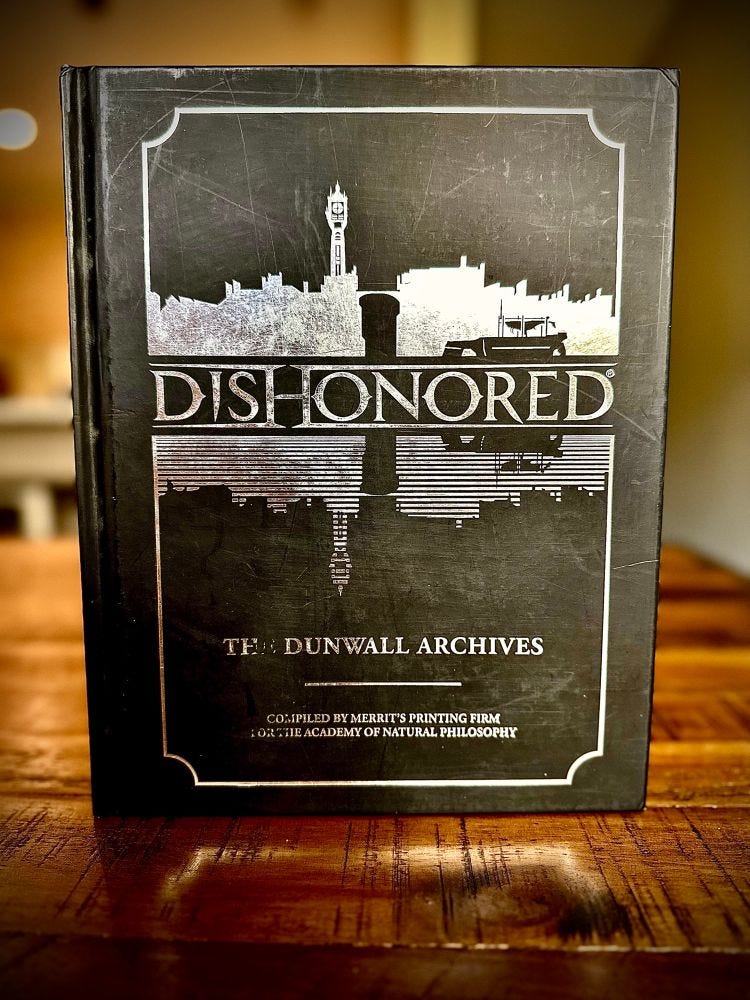
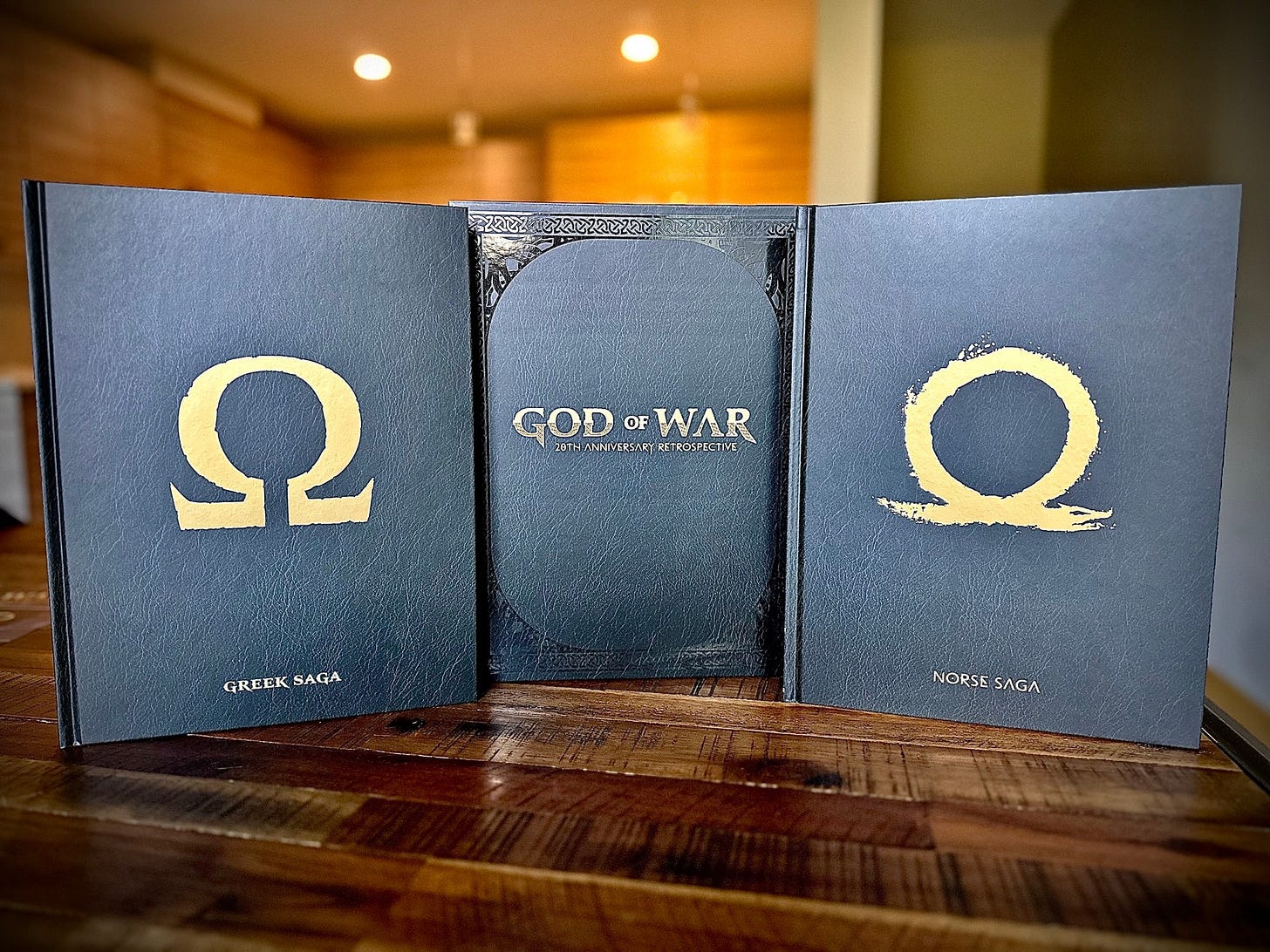
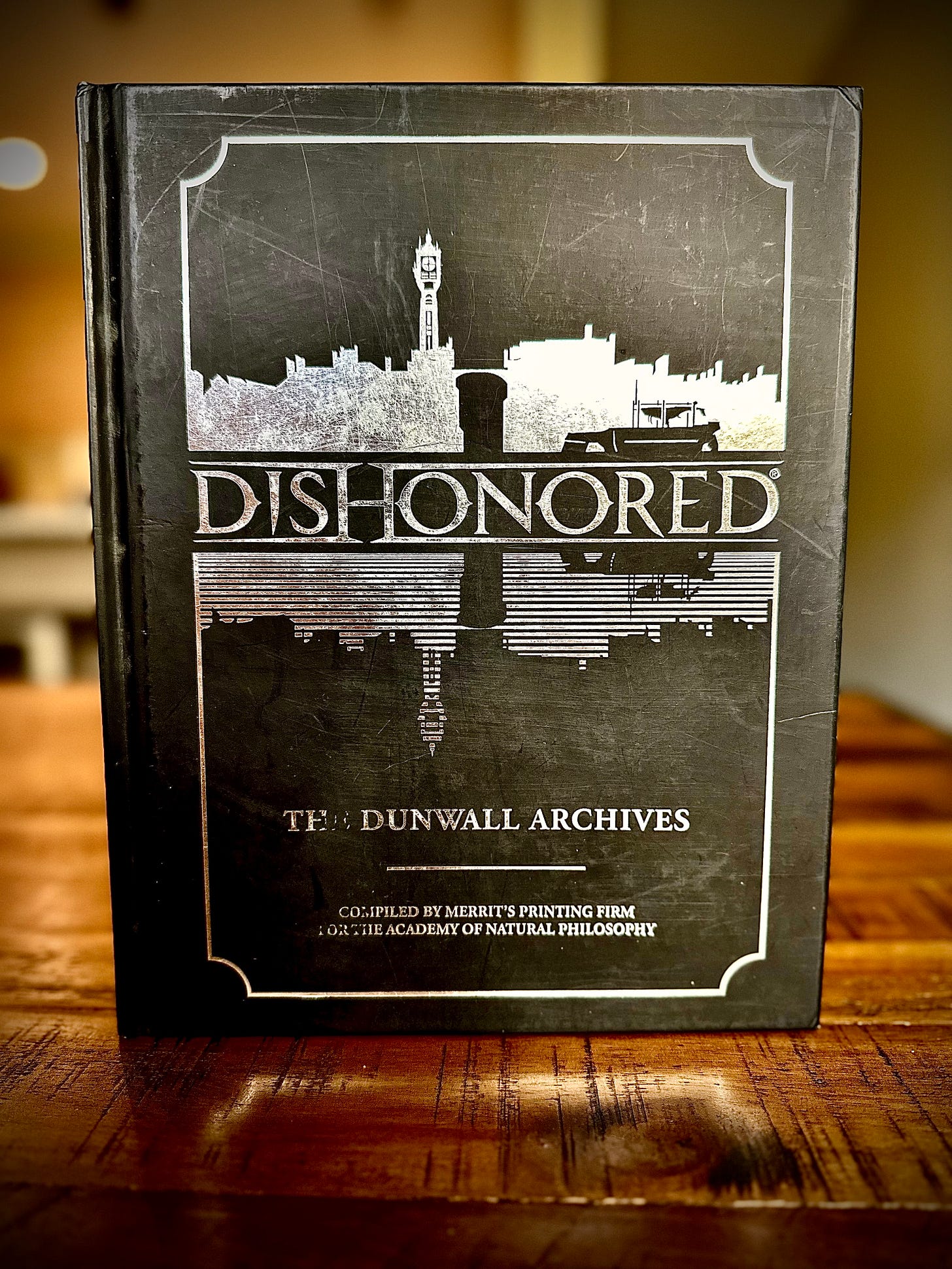

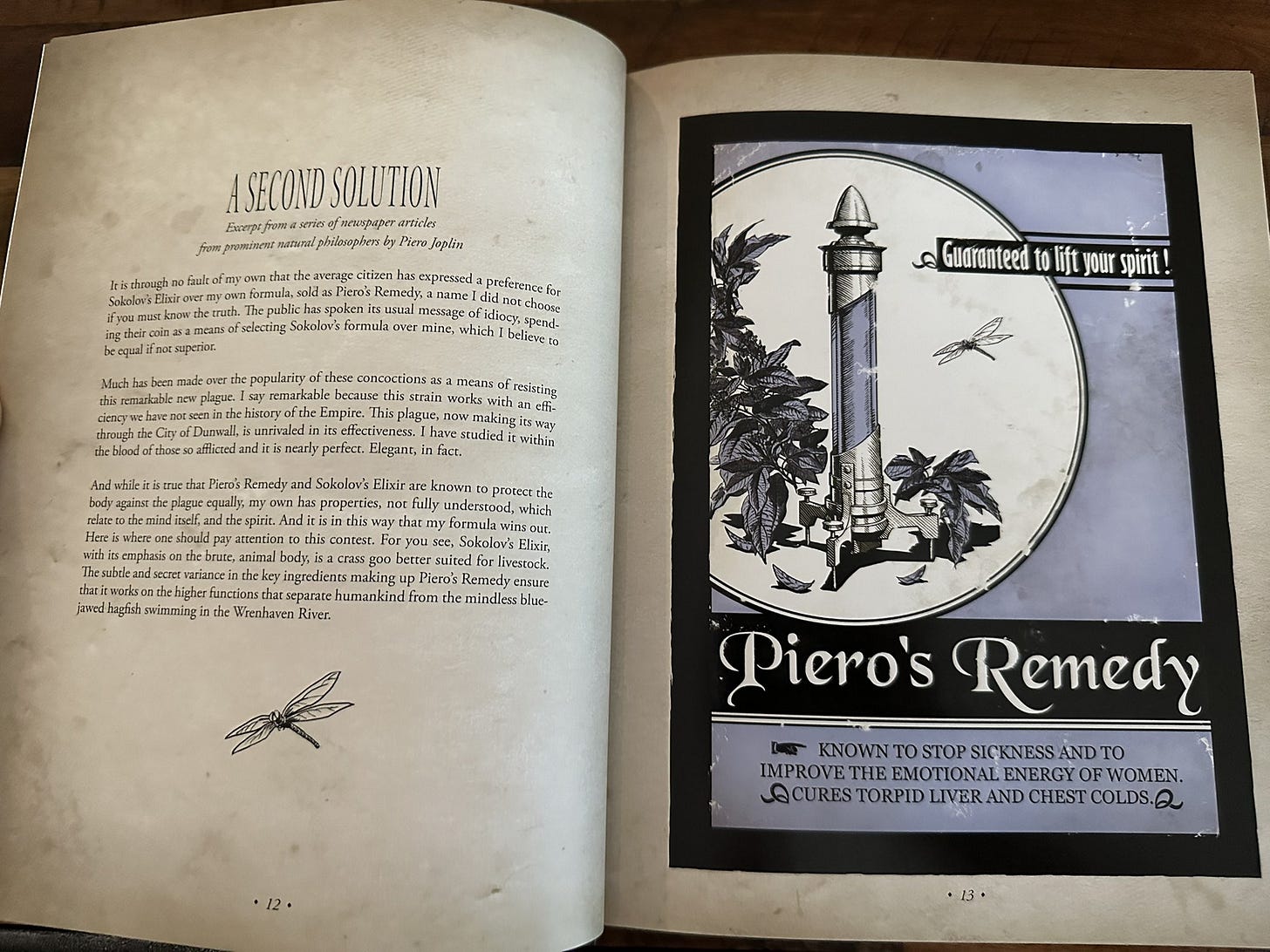
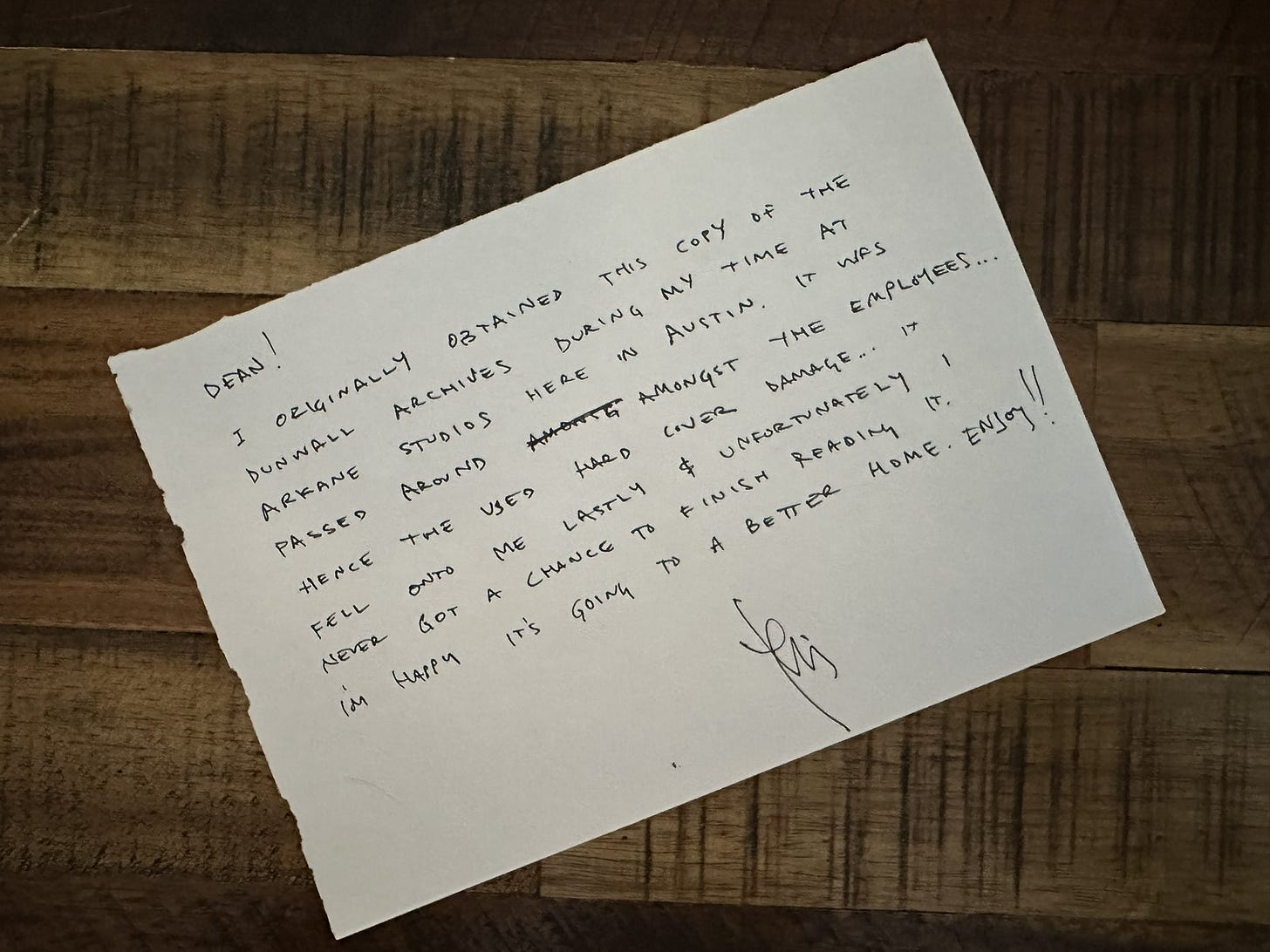
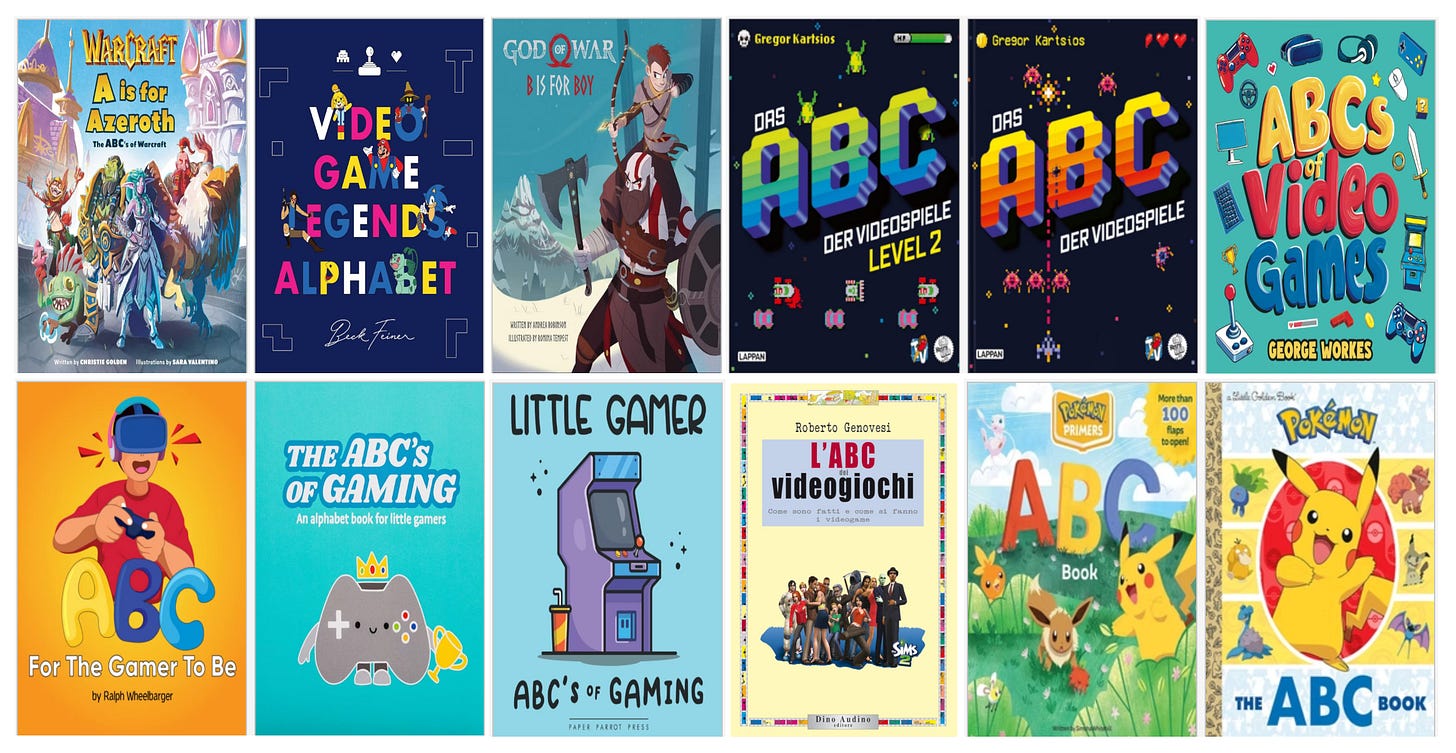
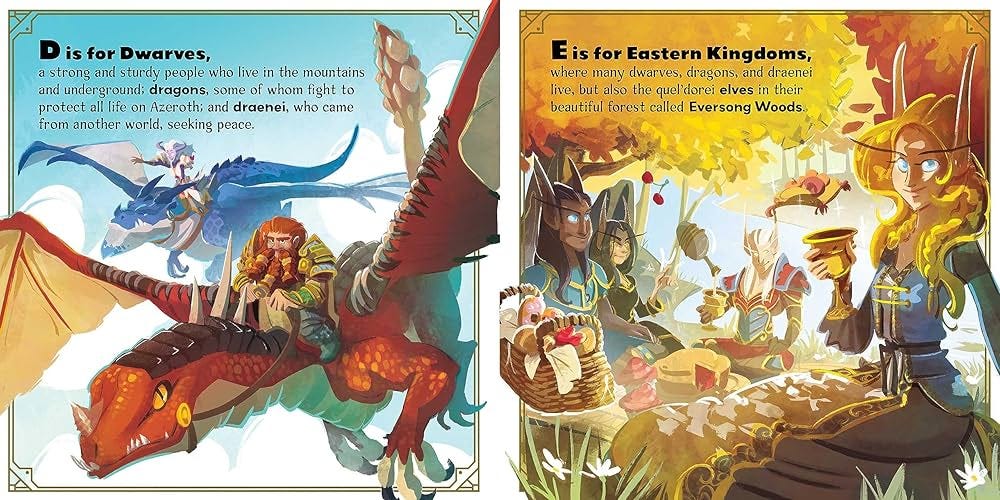
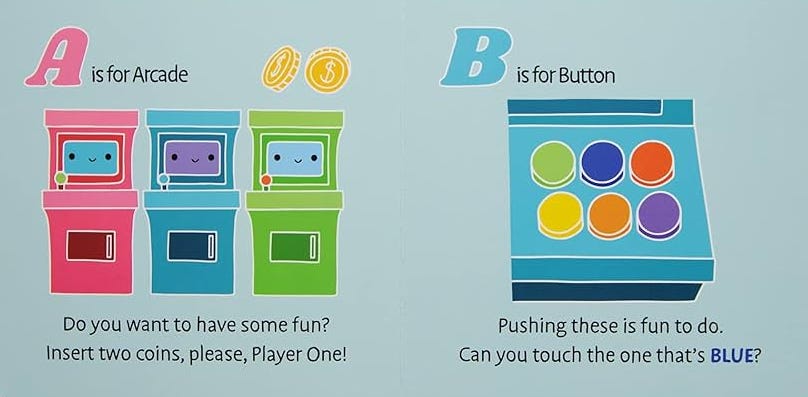

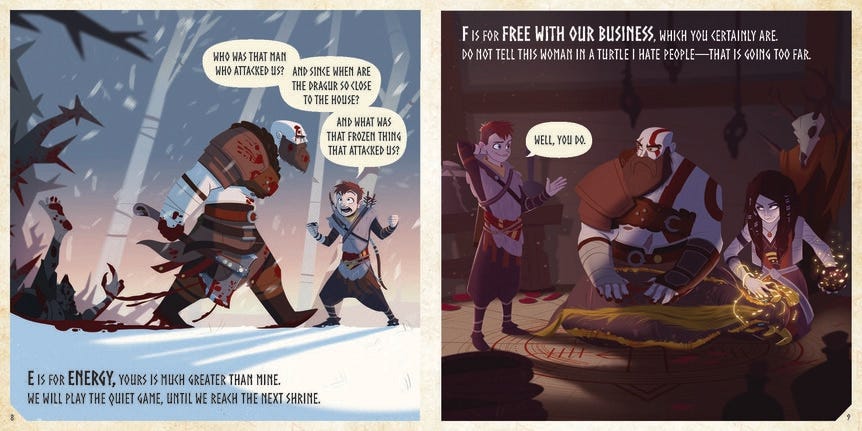

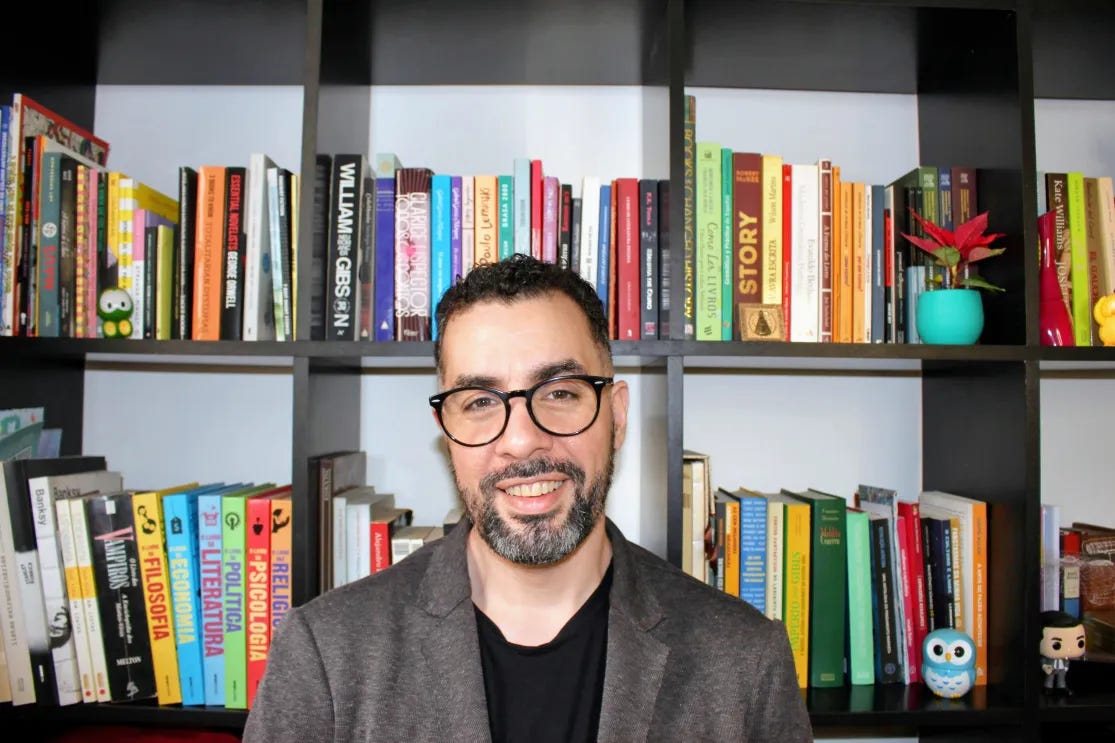

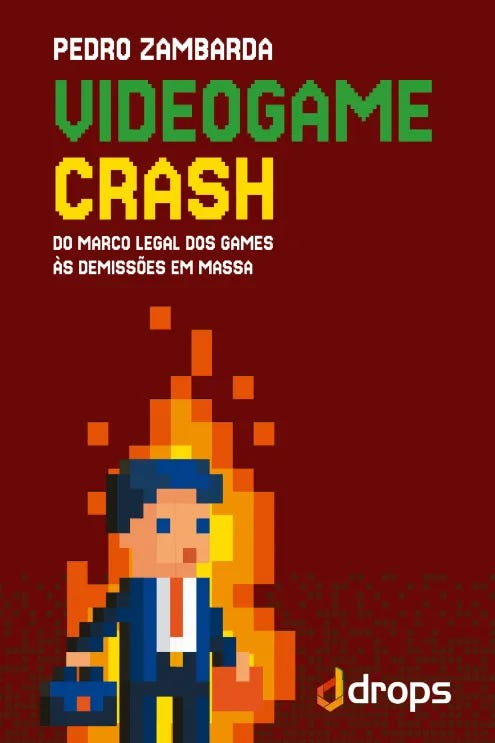
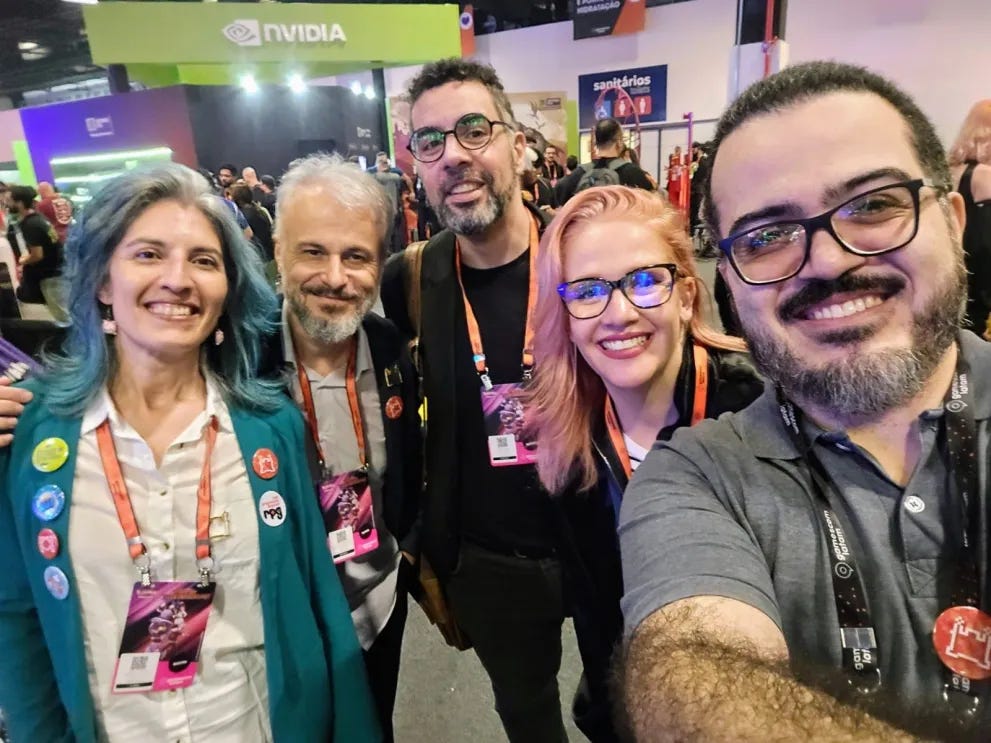
Thank you for letting me be part of this wonderful initiative that is The Video Game Library. Congratulations on reaching 1,000 subscribers! Here’s to many more subscribers, more books, and more readers to come.
Thanks for the mentions in this week's newsletter! Great write up!
Although Arkane Austin didn't develop Dishonored (we were on the production of Prey at the time when Arkane Lyon was on Dishonored 2) this IP has been highly influential for it's Art and hand craftedness of the games to come.